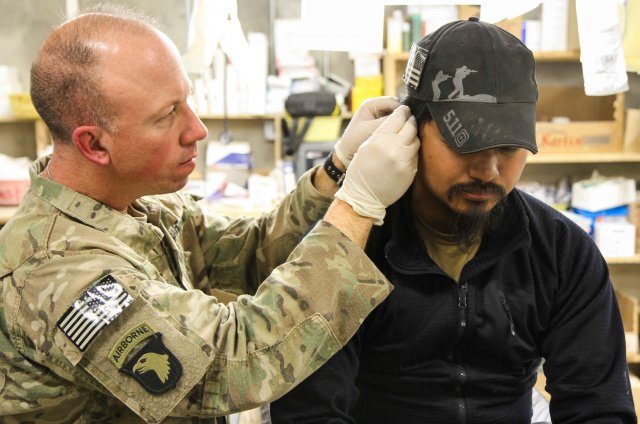Results for: tooth fairy science
What’s in a name?: NCCAM tries to polish a turd
What’s in a name? that which we call a rose By any other name would smell as sweet; So Romeo would, were he not Romeo call’d, Retain that dear perfection which he owes Without that title. Romeo, doff thy name, And for that name which is no part of thee Take all myself. William Shakespeare, Romeo and Juliet, Act II, Scene 2...
Legislative Alchemy 2014 (so far)
Legislative Alchemy is the process by which credulous state legislators turn practitioners of pseudoscience into state-licensed health care professionals. In addition to unleashing quackery such as homeopathy, colonic irrigation, moxibustion, reiki, cranial sacral therapy and the detection and correction of subluxations on the public, these practice acts typically give chiropractors, naturopaths and acupuncturists the freedom of being governed by their own regulatory...
Integrative Medicine’s Collateral Damage
Integrative medicine combines the practice of medicine with alternative medicine. Proponents tend to take a paragraph or two to say this, but that is what remains when boiled down to its essence. By putting this more concise definition together with Tim Minchin’s often-quoted observation about alternative medicine, you get: integrative medicine is the practice of medicine combined with medicine that either has...

Integrative Medicine Invades the U.S. Military: Part One
Integrative medicine proponents claim superiority over physicians practicing “conventional” medicine. (Which I will refer to as “medicine” so as not to buy into integrative medicine’s implied claim that medicine can be practiced with two separate standards.) While conceding that medicine is good for treating conditions like broken arms and heart attacks, physicians who purport to practice integrative medicine argue it ignores “the...
CAM and Creationism: Separated at Birth?
Over the past weekend, I had the opportunity to attend CSICon in Nashville, Tennessee. The Committee for Skeptical Inquiry (“CSI”) combats all sorts of pseudoscience, including creationism/creation science/intelligent design and alternative/complementary/integrative medicine. Our own Team SBM was ably represented by Harriet Hall, David Gorski and Kimball Atwood, whose presentation highlighted the credulous acceptance of CAM in some medical schools, and by Steve...
Guiding Lights
This is, I admit, a content free post. July and August are the sunny days here in the great Pacific Northwest, and rather than spend time in front of the computer, I am outside with the kids. To compound matters, I was on call the labor day weekend (I usually write the first draft the weekend before the posts are due) and...
Acupuncture, Infertility, and Horrible Reporting
An article (and associated news video clip) from ClickOn in Detroit is titled “Alternative treatment helps Michigan doctor beat infertility.” This is a misleading title, and the report is an example of poor science reporting. Was she infertile? The patient in question was a 33-year-old family practice doctor who believed she was infertile. By definition, infertility is failure to conceive after a...

Dummy Medicine, Dummy Doctors, and a Dummy Degree, Part 2.1: Harvard Medical School and the Curious Case of Ted Kaptchuk, OMD (cont.)
Rave Reviews In 1983, Ted Kaptchuk, the senior author of the recent “albuterol vs. placebo” article, and soon to become the long-time Second-in-Command of the Harvard Medical School “CAM” program, published The Web that Has No Weaver: The book received rave reviews: A major advance toward the synthesis of Western and Eastern theory. It will stimulate all practitioners to expand their understanding...
Pragmatic Studies and Cinderella Medicine
Explanatory studies are done under controlled conditions to determine whether a treatment has any efficacy compared to a placebo. Pragmatic studies are designed to assess how the intervention performs in everyday real world practice. Pragmatic studies measure practical success but don’t determine actual efficacy: that requires a proper randomized controlled trial (RCT) with an appropriate control. Pragmatic studies have their place, but...
Nosodes Redux: “I hate those meeces to pieces!”
Life and medicine generate facts and experiences that require conceptual frameworks that aid in understanding. It is no good have a pile of facts if they cannot be understood within a broader understanding. The practice of Infectious Diseases, while certainly aided by understanding anatomy, physiology, microbiology, chemistry and the other sciences that form the core of medicine (referred to in Medical School...

